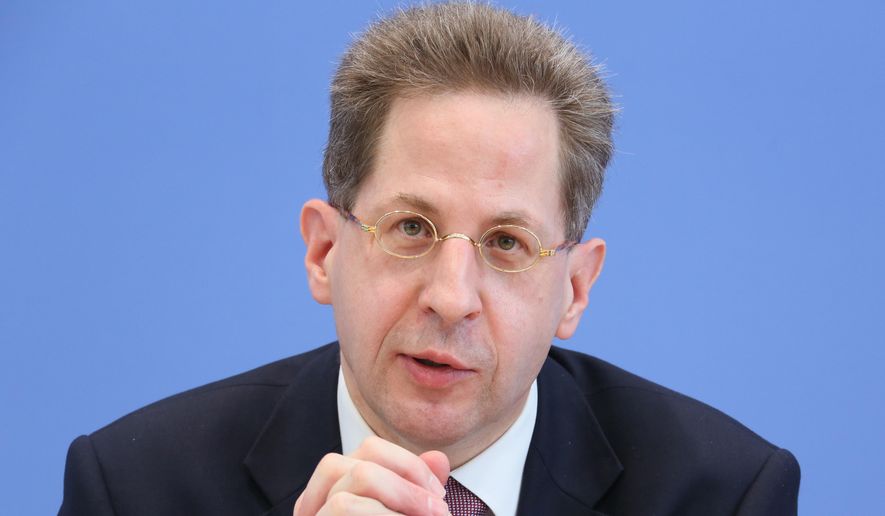Germany’s top intelligence official said Wednesday that Russia was likely behind a cyberattack conducted against the Informationsverbund Berlin-Bonn (IVBB), a German government computer network, but that federal authorities determined the incident didn’t result in any damages.
“We perceived it as a cyberattack with a Russian origin,” said Hans-Georg Maassen, the head of Germany’s domestic intelligence agency, the Bundesamt für Verfassungsschutz (BfV).
“A 100-percent attribution … that the perpetrator is in Moscow and that it’s a government agency is not possible, but we can talk about a high likelihood,” said Mr. Maassen, Reuters reported.
The cyberattack was first reported in February, and a German Interior Ministry spokesman subsequently acknowledged that the incident had impacted an IVBB network used to exchange sensitive but not highly classified documents.
“The spilling of secrets caused considerable damage, but the government, as of today, is trying to limit the damage,” Armin Schuster, a member of Chancellor Angela Merkel’s conservative party, said at the time.
German authorities monitored the attack after detecting it in December and ultimately determined it had not caused any damage, Reuters reported Wednesday.
German media reported in February that Russia may have been responsible for the cyberattack, drawing a denial last month from Kremlin spokesman Dmitry Peskov.
“We note with regret that any hacking attacks in the world are associated with Russian hackers but that each time they (the allegations) are made without any tangible proof,” Mr. Peskov told reporters last month.
Russian state-owned media on Wednesday described Mr. Maassen’s claim as “baseless” and “groundless.”
German politician Dieter Janacek, a member of the Greens Party, previously said the cyberattack would constitute “a form of warfare against Germany” if connected to Russia.
Germany said a 2015 attack against the Bundestag parliamentary network was likely waged by APT28, an “advanced persistent threat,” or sophisticated, presumably state-sponsored hacking group, linked to Russia.
The attack against the IVBB was the work of an APT, albeit not APT28, Mr. Maassen added, according to the Reuters report.
• Andrew Blake can be reached at ablake@washingtontimes.com.




Please read our comment policy before commenting.